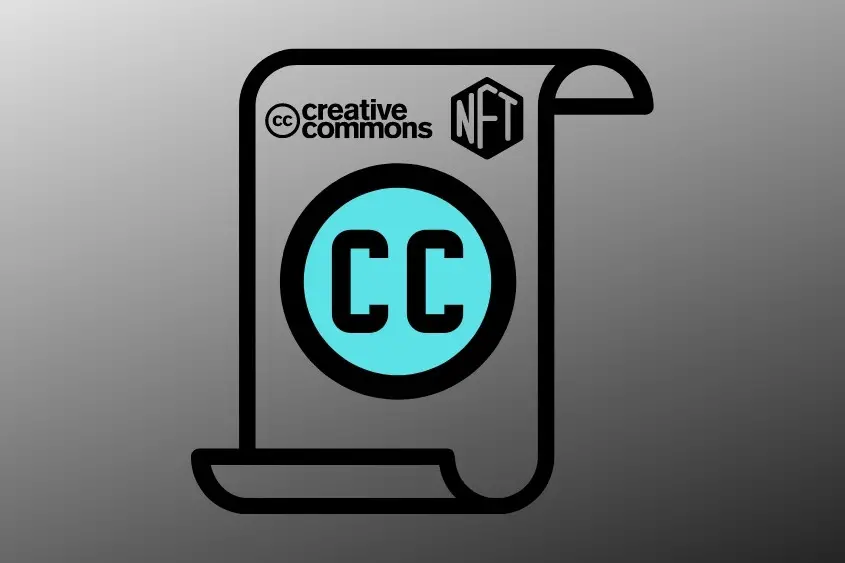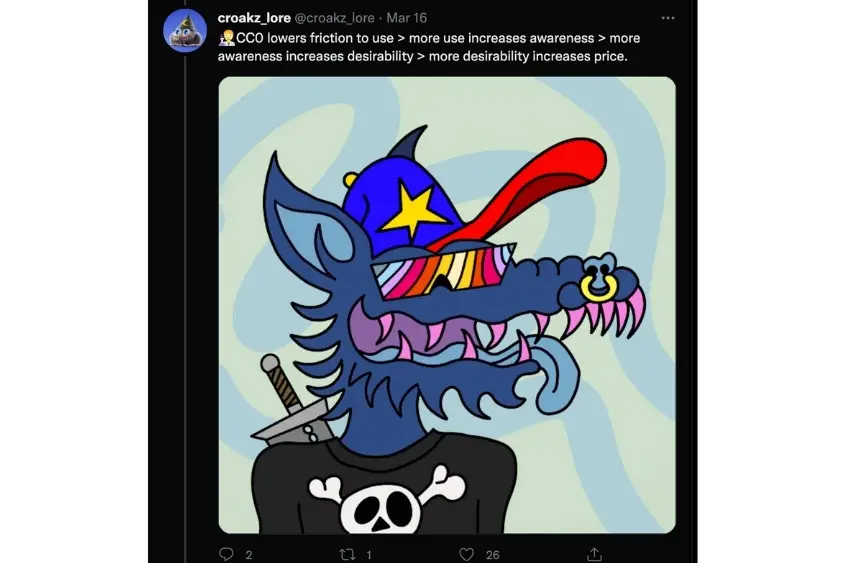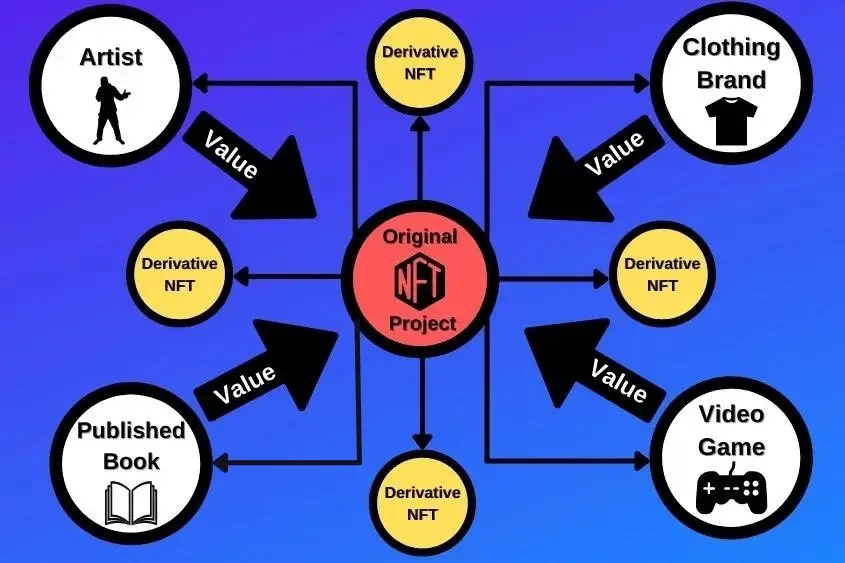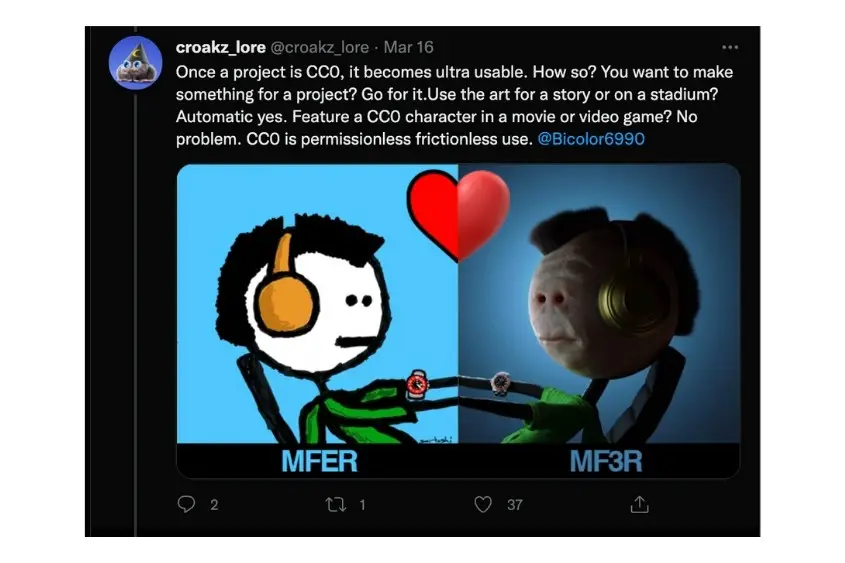NFT development is still in its early stages, as a result, there are still many misconceptions about the technology. However, as time progresses more is being discovered about NFTs. One of the more recent discussions is CC0 NFTs.
CC0 NFTs can be seen as open-source IPs. However, it has its own set of benefits and drawbacks. Here’s everything you need to know about CC0 NFTs and how they affect holders of these assets.
What is CC0 NFT?
A CC0 NFT is a Creative Common Zero license that allows NFT holders to use a project’s intellectual property rights however they want. CC0 means anyone can use the NFT for commercial purposes without needing to credit the original artist, creator, team, or brand.

Whenever there is a discussion about copyright and creative works, digital ownership has always been a very interesting point of concern for all. Usually, when an artist, creator, or team creates something, be it a piece of art, a song, or literature, the creator owns the rights.
They can do anything with it however they please. They have total control over how that work gets used. Creators now have a way to let other people use their creations for all kinds of purposes. All thanks to a CC license, which stands for Creative Commons License.
It is one of the most versatile and liberal forms of copyright licensing. Under this licensing NFT creators can release their work into the public domain. And they can also do it in as many jurisdictions as they can.

The main benefit of this is that others can use it for commercial purposes. They do not necessarily need to give attribution of the NFT to the creator, artist, or team. Meaning there will be no issues with copyright infringement of any kind.
CC0 NFTs or creative common NFTs can be seen as open-source intellectual property. One initial concern that is raised is scarcity. NFTs make digital assets and objects scarce. So, you might think that releasing an NFT under the CC0 license will make it scarce. Well, not quite.
It does not hamper the value or the scarcity of these whatsoever. Being in the open-source landscape allows IP to be developed together by the community. An engaged community is one of the most important aspects of the Web3 space.
One key thing to understand is that not all NFTs are CC0 projects, nor do all NFTs need to go the CC0 licensing route. However, CC0s do show a different path for how NFTs can be shared and used.
Why Are CC0 NFTs Important?

Copyright issues have been a source of frustration for everyone. Some would argue that it is too big of a problem to solve. With this kind of licensing, copyright issues can be solved. And the best part is that creators can grant people permission to use their work for a variety of purposes. It can be both for professional and personal uses.
Another reason why CC0 NFTs are so important right now is that they allow the community to flourish around them. New IP can be developed with the collective effort of everyone involved and each member of the community is adding value to it. This is not something to be taken lightly and is generally encouraged in many NFT communities.
What Are the Benefits of CC0?

When you have an NFT or CC0 NFT, some natural pros pop up. Most of it is related to copyright and its value. The relevant industries are also very excited about NFTs in general. So, what are some of the pros of CC0 NFTs?
Eliminates copyright concerns
The ease with which copyright issues can be tackled is one of the biggest pros. CC0 ensures security against copyright concerns, and creators can receive revenues and royalties for their hard work.
Creative work has value, artists know that, and so does everyone else. With CC0 NFTs, creators have more freedom while still allowing authenticity and transparency.
Traceability
These pieces can be traced without much effort. The evidence of who created it is sort of undeniable since it all stays in the public domain and the blockchain. Moreover, you can also track the edition sizes. Creative commons can help eliminate issues that creep up regarding copyright.
What Are Examples of CC0 NFTs?

To understand the CC0 NFTs better, let’s look at some solid examples of CC0 NFTs that are well-known in the market today. There are a couple of popular ones, like CrypToadz and Blitmaps.
CrypToadz is a series of NFT toad collectibles. There are a total of 6,969 collectibles and they were created by the artist Gremplin. CrypToads were released into the public domain and the CC0 nature of CrypToadz is very intriguing. It is adopting more of an open garden approach. That means anyone has the freedom to do anything.
Moreover, Blitmap is an on-chain universe for art collections. It is community-crafted, meaning it makes all the sense in the world that they go the CC0 route. Holders can get access to some pretty unique perks as well, like expansion packs that guide the ever-growing Blitmap universe.
What Are Examples of Non-CC0 NFTs?

Not all NFTs are CC0s, though. Enter non-CC0 NFTs. This is a catch-all term. Every other NFT licensing project other than CC0 is called non-CC0 NFT.
Non-CC0 NFTs means that only the creators or owners can commercialize the project or develop partnerships with other entities. A good example of non-CC0 NFT is VeeFriends.
You will see that some allow rightful use of the pieces, while others do not allow it at all. One of the biggest differentiators between the two is commercialization. More specifically, the ability to commercialize.
CC0 NFTs can be commercialized by anyone. That means the general public, owners of single NFTs, and original creators. However, non-CC0 creations can only be used commercially by the brand, not by holders.
Final thoughts
Now that you’ve learned everything there is to know about CC0 NFTs, you’ll be able to appreciate their immense potential. Creators now have a whole new and innovative way of showcasing their amazing work.
Others can use it to accomplish a wide range of goals. Not to mention that one of the few things that set it apart is its community.
